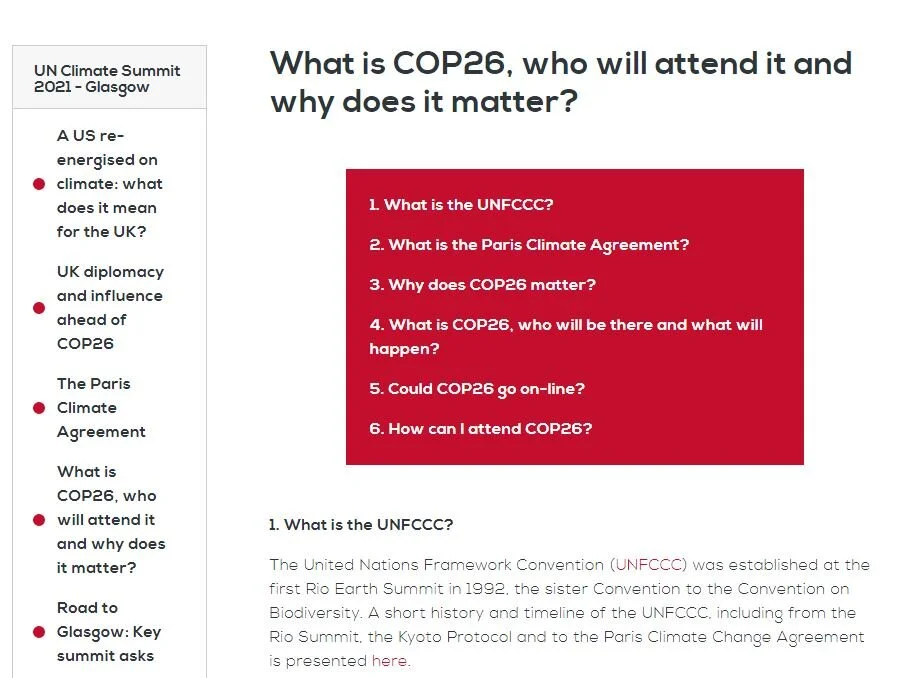
Climate Crisis - The Basic
COP26, Paris Agreement, NDCs, & Climate Science
The Paris Climate Agreement - Key Aspects
At COP 21 in Paris, on 12 December 2015, Parties to the UNFCCC (UN Framework Convention on Climate Change) reached a landmark agreement to combat climate change and to accelerate and intensify the actions and investments needed for a sustainable low carbon future. The Paris Agreement builds upon the Convention and – for the first time – brings all nations into a common cause to undertake ambitious efforts to combat climate change and adapt to its effects, with enhanced support to assist developing countries to do so. As such, it charts a new course in the global climate effort.
What is COP26? Why it Matters?
The UNFCCC has over 200 countries who are ‘party’ to the Convention. The Parties to the Convention meet every year (with the exception of 2020 due to Covid-19) at the Conference of the Parties (COP). The meeting of the UNFCCC in Glasgow in November 2021 will be COP26.
Infographic - A Short History of the UN Climate Summits and Progress
From Margaret to Madrid, we take you back to the dawn of global climate action and guide you through its checkered 30-year history. We end by looking forward to this year's critical UN climate summit in Glasgow. The delayed 2021 summit, to be hosted by the UK for the very first time, is widely regarded across science and policy as the last opportunity for the international community to lift ambition in order to deliver the temperature goals of the Paris Agreement.
UK Government’s COP26 Official Website
The UK will host the 26th UN Climate Change Conference of the Parties (COP26) in Glasgow on 1 – 12 November 2021. This portal provides many information about the conference, updates, and news.

GHG Emission Control: NDCs and Status
4 Charts Explain Greenhouse Gas Emissions by Countries and Sectors
Very useful interactive graphic showing different countries’ emissions and sectors within different countries.
(Published by the World Resources Institute, updated: Feb 2020)
Climate Progress Snapshots
2020 marked a turning point in the race to a healthier, more resilient and more regenerative economy with zero emissions by 2050. The strengthened commitments (in the form of Nationally Determined Contributions - NDCs) that countries around the world bring to the UN's COP26 climate summit in November 2021 - as required under the 2015 Paris Agreement - will go a long way in cementing the 2020 turning point. Meanwhile, change is happening across the global economy, driven by cities, regions businesses and investors - and often much faster than national governments.
This open-access snapshot tool pulls together the myriad of climate pledges and changes taking hold in the real economy, and includes in-depth research briefings on the impacts of climate change, policies, sectoral potential and other timely topics.
2020 NDC Tracker
The Paris Agreement calls on countries to deliver new Nationally Determined Contributions (NDCs) every five years that are informed by the latest advances in technology, science and shifting economic trends.
Detailed update on all countries that are updating or enhancing their national climate commitments in 2020 or in the lead up to COP26.
(Published by Climate Watch)

Climate Science
(for laypersons)
Global Weirding
A helpful video series for laypersons on climate, politics, and religion.
By the renowned climate scientist and devoted Christian Dr. Katharine Hayhoe
Skeptical Science
A comprehensive website explaining climate change science & rebutting global warming misinformation.










